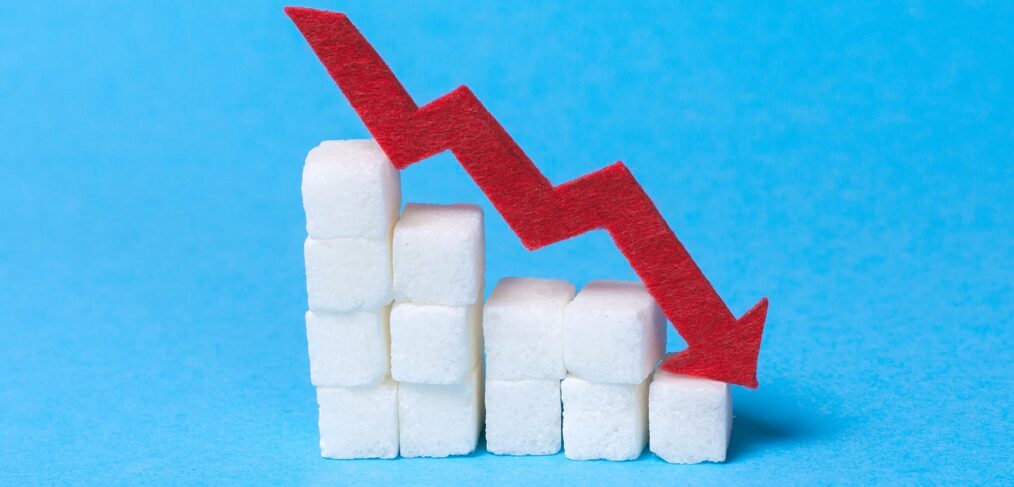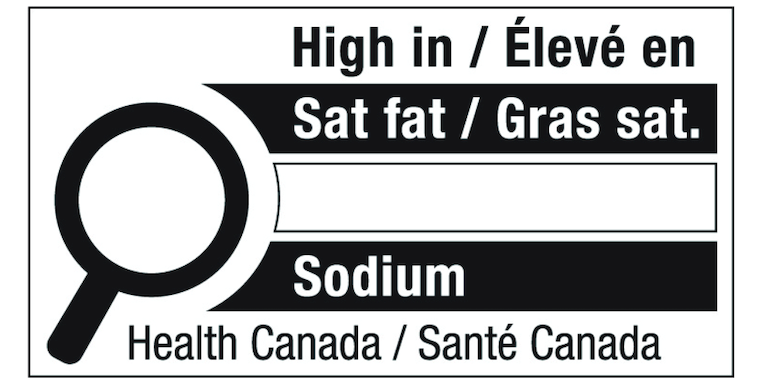
Sugar! Consumers #1 Food Evil
Sugar has been a staple in consumers’ meals and beverages for generations. It was not uncommon to go to a coffee shop and request- “Double Milk, Double Sugar”. It was uncommon to drink a diet soda. The flavour of the month was Coke Classic, even though it contained 9 teaspoons of sugar per 330ml can.[i] Significant given the American Heart Association recommends women consume no more than 6 teaspoons and men 9 teaspoons of added sugar per day.[ii]
Our in-active attitudes toward our health have taken their toll. Large cross-functional studies have revealed a direct correlation between increased sugar consumption, weight gain, and obesity. That was the past. The present is a more active lifestyle in which consumers are taking control of their health, and seeking ways to reduce their sugar intake. Limiting sugar intake is the number 1 way in which consumer diets have changed. Brands are taking notice. This past January, seven emerging food and beverage brands formed the Alliance to Control Excessive Sugar (ACES).
Consumers Aspirations!
Sugar reduction is top of mind for consumers. A survey undertaken in 2021 by the International Food Information Council revealed that 72% of consumers were trying to limit or avoid sugar entirely.[iii]
Euromonitor International’s health and nutrition global survey revealed that 52% of global consumers believe that lower sugar intake would make them feel healthier.[iv] Consumers are turning to nutritional labels to understand the products’ sugar content. According to a study undertaken by Fona, 63% of consumers reported “I will re-think purchasing the product now that I know the grams of sugar”.[v]
The Use of Artificial Sweeteners
In response, brands have turned to artificial sweeteners as a sugar substitute. Non-sugar sweeteners are low or no-calorie alternatives to free sugars that are generally marketed as aiding weight loss or maintenance of healthy weight. To provide more clarity on this subject matter, I interviewed Jane Dummer. Jane is a respected thought leader in the food industry – A Registered Dietitian and has a Nutrition Science degree from Canada’s leading food university – the University of Guelph.
1. Are Artificial Sweeteners Healthy For Consumers?
“The scientific evidence continues to be debated worldwide when it comes to stating artificial sweeteners are healthy for consumers”. “When it comes to the relationship of weight control and blood glucose control and sugar substitutes, the research has been criticized”. “According to the World Health Organization, there is no clear consensus on whether non-sugar sweeteners are effective for long-term weight loss, or if they are linked to other long-term health effects”.
2. What Are Consumers’ Attitudes Towards Sweeteners?
“I believe there is consumer confusion around sugar substitutes with the dietary advice to focus on consuming natural products with low sugar or no added sugar”. ”Generally, there is a consumer trend worldwide of wanting products that derive sweetness from intrinsic ingredients without the addition of artificial ingredients”.[vi]
The No Sugar Added Claim
Sugar reduction is an everyday part of product development. Brands have added the term “No Sugar Added” as a way to entice the product’s healthiness. A “no added sugar” claim can be made (without added sugar or no sugar added) if there are no sugars added during the processing or packing, including ingredients that contain sugar like juice, dry fruit, fruit, etc. According to FONA, 73% of consumers claim a “no sugar added” claim is important.[vii]
The Introduction of the Sugar Tax
Over 50 countries have implemented taxes on sugar-sweetened beverages, including Europe, USA, and Canada (New Foundland) as a way to entice consumers to reduce their sugar intake.
Many researchers feel reducing the product’s sugar content would have a larger impact on consumers’ health, than a sugar tax.
“Reducing the sugar content of commercially prepared foods and beverages will have a larger impact on the health of Americans than other initiatives to cut sugar, such as imposing a sugar tax, labeling added sugar content, or banning sugary drinks in schools.” [viii]
Siyi Shangguan, Lead Author
Canada’s New Nutrition Label
Canada has unveiled a new front-of-package nutrition label effective January 1, 2026. It is designed to highlight foods high in certain content that could impact consumers’ health. Foods that contribute 15% or more of the daily value of sodium, sugar, or saturated fat will need to display the new front-of-package nutrition label.[ix]

The Brand’s Dilemma
Brands understand the need to reduce their sugar content. This is no more evident than in the beverage aisle in which brands have launched “zero-sugar” beverages. At Keurig Dr. Pepper, “zero-sugar” launches were responsible for one (1%) percentage point of market-share gain for the company.[x] Though consumers are concerned about the amount of sugar they consume, a recent study (2021) undertaken by FONA International revealed when purchasing food and beverage,
- 72% of consumers prioritized taste over the product’s sugar content.
- 62% of consumers prioritized price over the product’s sugar content.[xi]
Like many consumers, I am seeking ways to reduce my sugar intake. I recognize products that contain high levels of sugar. I do not have to be educated by the Canadian Federal Government on this matter.
I leave you with this closing quote:
“Foods high in bad fats, sugar, and chemicals are directly linked to many negative emotions, whereas whole, natural foods rich in nutrients – foods such as fruits, vegetables, grains, and legumes – contribute to greater energy and positive emotions”.
Marilu Henner, Izquotes.com
[i] How Much Sugar is Actually in Coke, www.goodto.com, January 2020
[ii] How Much Sugar is Too Much? / American Heart Association, www.heart.org
[iii] Sugar Reduction Top of Mind Among Consumers, www.dairyfoods.com, January 2022
[iv] Zero Sugar Replacing Diet in the Beverage Isle, Convenience Store Octane, Darren Climans, April 2022
[v] Consumers Rank Reducing Sugar as the # 1 Health Consideration, www.cooksdelight.com,
[vi] Richard Baker’s Blog – Artificial Sweetener Questions, Jane Dummer, www.janedummer.com, July 2022
[vii] Consumers Rank Reducing Sugar as the #1 Health Consideration, www.cooksdelight.com
[viii] Cut Sugar to Save Lives, Researchers Urge, www.news.harvard.edu.com, August 2021
[ix] Canada’s Goes Front of Package with New Nutrition Label, www.supermarketnews.com, July 2022
[x] Zero Sugar Replacing Diet in the Beverage Isle, Convenience Store Octane, Darren Climans, April 2022
[xi] Shoppers Value Taste and Price Over Sugar Content, Study Finds, www.fooddive.com, June 2021





